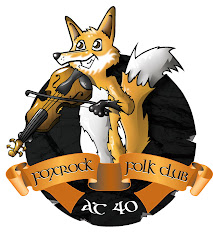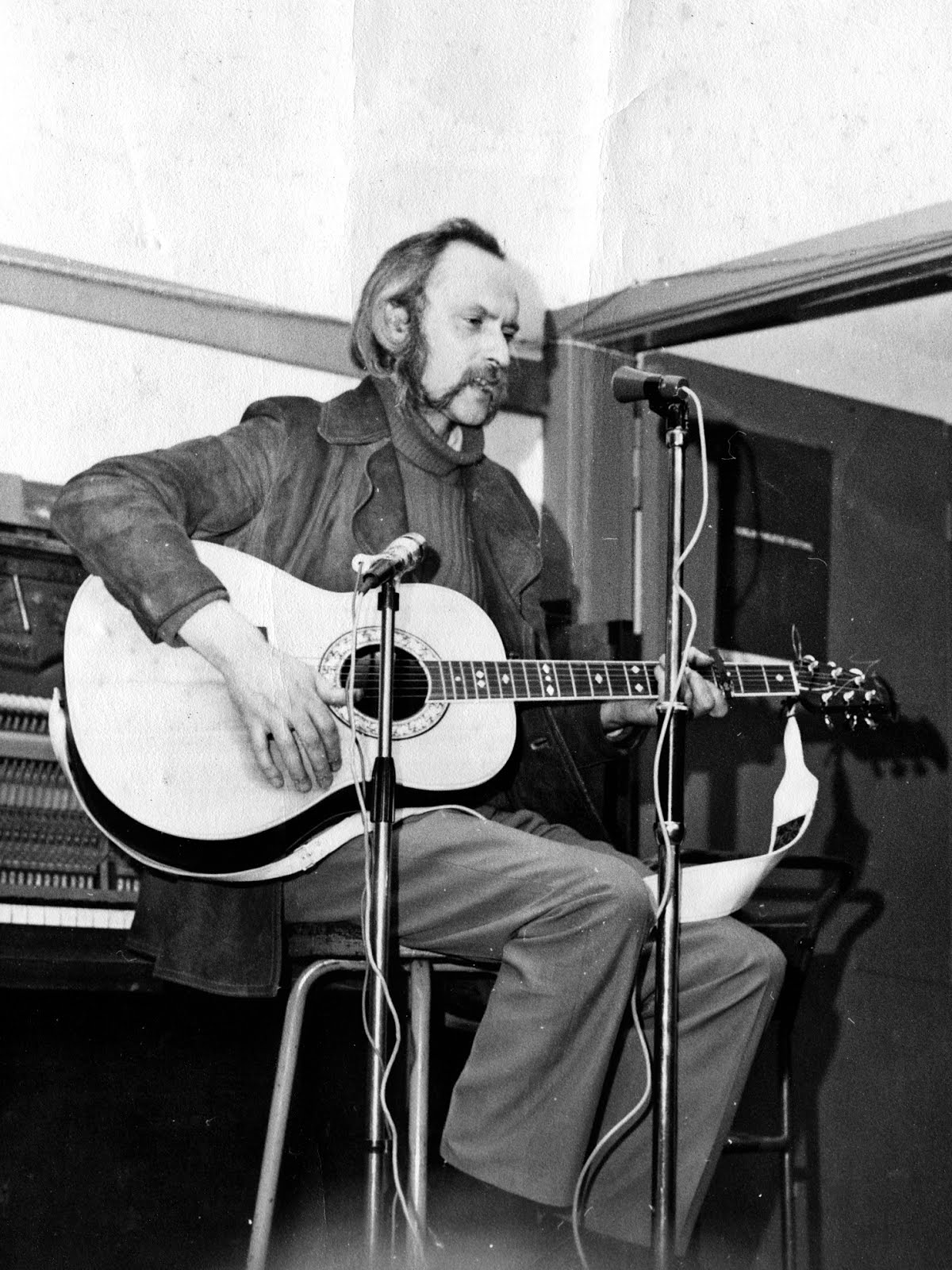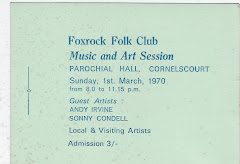
One of the many unique features of the Foxrock Folk Club was that, even though it only existed for a short period, by a mixture of seredipity and determination, a large number of the fortnightly sessions were recorded on reel-to-reel tapes. These tapes are now forming the basis of the radio programmes about the club currently being broadcast on RTE Radio 1 on Thursday evenings.
The tapes were made by Kevin McCann, who, when he began recording in 1971, was a 15 year old schoolboy with an enthusiasm for tape-recording and jazz. He was encouraged to get involved by his sister, Anita, one of the founder members of the club.
Kevin describes carrying his heavy (30lb) Sony recorder from his house about 500 yards away to the parish hall for each session and setting up the equipment beside the stage. He had two microphones which were each taped to the PA mics, as can be seen in the photograph of local performer Michael Lynch (above). In the early days tape was at a premium, as there was very little money to buy new stock and decisions had to be made after each session which performances to keep and which to record over. It is a credit to Kevin's judicious management of his limited resources that so many performances have survived intact.
Since the time they were recorded the tapes have lived a charmed life, having first to avoid being taped over in order to record later sessions (or, in Kevin's case, some must-have, avant garde free jazz performer on BBC 3). They then passed through a number of different hands before I agreed to store them about 8 years ago. They have been through two house fires with only smoke and flame damage to the outer cases and have suffered the usual problems of damp, age and decay.
Having got them safely back to Newcastle in England (after persuading one of the security staff at Dublin airport not to put them through the x-ray machine by telling him who was on the tapes - fortunately he was a Louis Stewart fan), I then set about trying to find some one in the area who could transfer them into a more durable format
Another problem was that some of the tapes were badly frayed, and in some cases broken, and needed to be spliced and handled with extreme care.
It is a tribute to the work of Kevin and John that the tapes have been preserved and the quality of the work done by them both can be clearly heard on the tapes being played during the current programmes on RTE as they have not been remastered before being broadcast.





Hi Just wondering if there are any plans release these recordings on CD or the likes. They are to me a piece of local history that I was unaware of before the release of the RTE documentary. As I am too young to have been there myself I would be very interested in having a recording for myself (regardless of the quality)
ReplyDeleteLikewise, it would be great to get this stuff out commercially. I have more or less heard most of the back catalogue of the Dubliners and Andy Irvine and to hear some 'new old stuff' is a breath of fresh air. If you put it out on CD I will get in the queue for my copy.
ReplyDeleteI am Garrett Brown and I was the bass palyer with the jazz/rock band, AURA, who played at the club in October 1971. The Gutarist was Bren Sheeran, drummer was Brian Despard and clarinet player was Mick Killian.
ReplyDeleteI live in Dubai and still play in bands at the age of 56 and love it. I worked in oil exploration throughout the Middle East. Bren Sheeran teaches music as far as I know and Brian Despard is a freelance sound engineer in London. I do not know the whereabouts of Mick Killian.